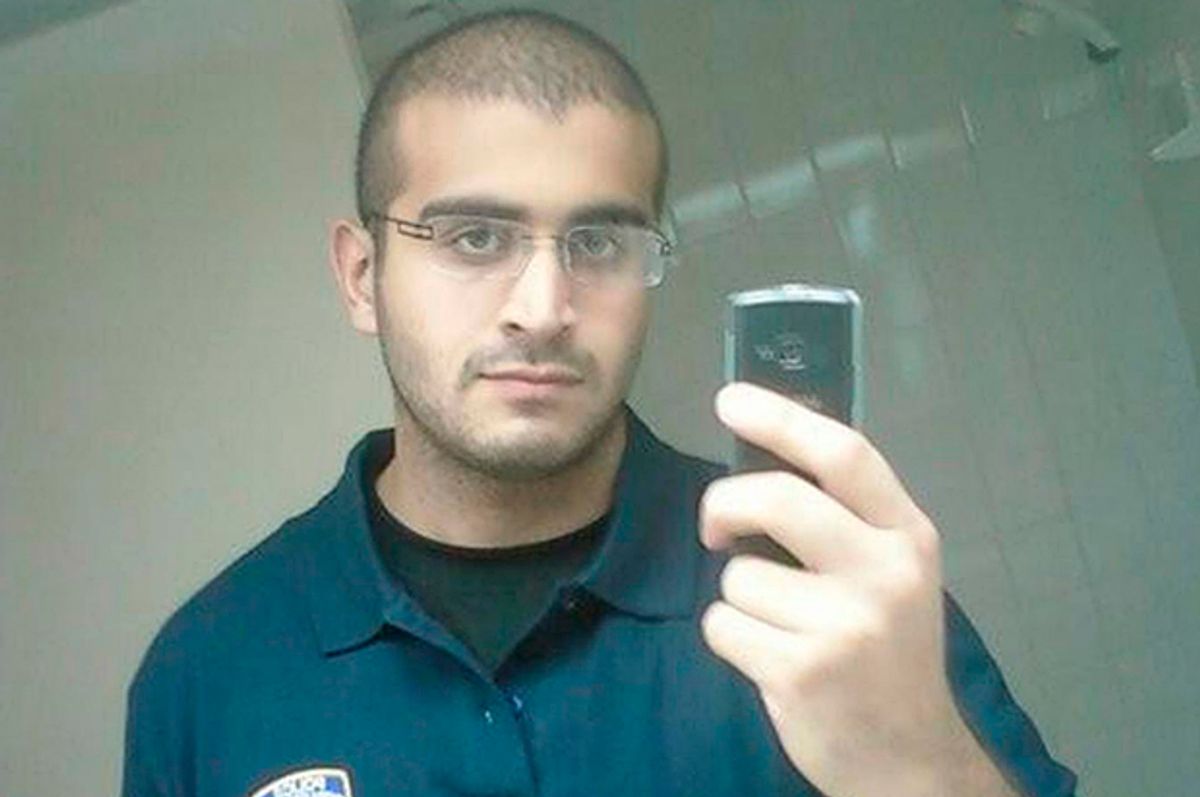The man who massacred 49 people at a gay nightclub in Orlando, Florida on June 12 had previously been the target of an FBI entrapment plot, a Florida sheriff told a local news outlet.
Orlando shooter Omar Mateen was investigated by the FBI twice. St. Lucie County Sheriff Ken Mascara told TCPalm that, in its 2013 investigation, the FBI tried to "lure" Mateen into a false terror plot.
The FBI planted a confidential informant in the courthouse where Mateen worked as a patrol guard in order to "lure Omar into some kind of act," Mascara recalled.
"Omar did not bite," he added. Mascara said the FBI concluded that Mateen was not a threat.
This revelation raises questions about the effectiveness of FBI sting operations. The agency relies heavily on informants, arguing that it must trick Americans it suspects are prone to extremism into participating in fake plots in order to stop future attacks. But, in this case, the entrapment clearly did not work. Mateen went on to shoot more than 100 people.
The Florida sheriff's remarks were highlighted in a report by AlterNet's Max Blumenthal and Sarah Lazare. The reporters interviewed Coleen Rowley, a former FBI agent and whistleblower who exposed how the agency mishandled information before the 9/11 attacks.
Rowley told them "it's pretty much standard operating procedure for preliminary inquiries to interview the subject or pitch the person to become an informant and/or plant an undercover or informant close by to see if the person bites on the suggestion."
"These pitches and use of people can backfire," she said. "In the case of Mateen, since he already worked for a security contractor, he was either too savvy to bite on the pitch or he may have even become indignant that he was targeted in that fashion."
A July 2014 report by Human Rights Watch found that there was "direct involvement" of government agents or informants in nearly all of the high-profile domestic terrorism plots in the U.S. since 9/11.
Some police sting operations "were proposed or led by informants," yet "the courtroom obstacles to proving entrapment are significant, one of the reasons the stings persist," The Guardian reported.
"In some cases the FBI may have created terrorists out of law-abiding individuals by suggesting the idea of taking terrorist action or encouraging the target to act," Human Rights Watch wrote.
The leading human rights group said terrorism prosecutions in the U.S. are "often an illusion."
Salon spoke with Sue Udry, executive director of the Bill of Rights Defense Committee and Defending Dissent Foundation. She has closely monitored the FBI's use of informants and sting operations against Muslim Americans, activists and more.
Udry cautioned about drawing too many conclusions about the case, stressing, “We don't know many details.”
She added, however, that the past FBI attempt at entrapping Mateen is “not surprising.”
“It certainly seems to fit the pattern that the FBI has used for the past 15 years of targeting Muslim Americans and trying got lure them into terror plots,” Udry said.
“It’s a technique that they use not just against Muslim Americans. They have used it against environmental activists, and they used it” against the Occupy movement, she continued.
The AlterNet report pointed to research by investigative journalist Trevor Aaronson, who found that informants involved in these operations have been paid as much as $100,000 by the FBI. Some informants have had criminal backgrounds themselves.
Mentally ill, lonely and desperate people are often the targets of police informants and sting operations, leading Aaronson to ask, "Is it possible that the FBI is creating the very enemy we fear?"
Udry argued that, at the end of the day, the FBI's reliance on informants "does more harm than good," and "targets people based on their First Amendment activities rather than their propensity for actually committing a crime."
"It promotes the FBI’s narrative of themselves being able to thwart terrorist attacks. It also beefs up the numbers of terrorists they can claim are plaguing our land," she said.
Plot after plot allegedly involving ISIS has later been shown to be a police sting operation. As Salon has previously reported, media reports often fear-monger about supposed “ISIS plots” while downplaying or even ignoring key details like police entrapment and mental illness.
"We’re constantly bombarded with dire warnings about the grave threat of home-grown terrorists," wrote Pulitzer Prize-winning journalist Glenn Greenwald after one of such operations was exposed in February 2015.
He continued: "But how serious of a threat can all of this be, at least domestically, if the FBI continually has to resort to manufacturing its own plots by trolling the Internet in search of young drifters and/or the mentally ill whom they target, recruit and then manipulate into joining?"
Frequent sting operations and a vast array of informants may leave the FBI caught up in a self-created snare, much like the NSA. Given how much of its time and resources go into unsuccessful entrapment, the FBI — like the NSA, which is unable to examine the data it sucks up from millions upon millions of Americans — might miss the real threats while it creates its own false ones.

Shares